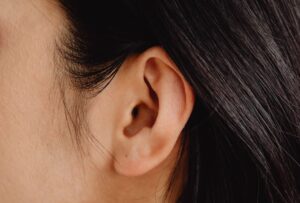Many people with the ability to hear take their ears for granted. We don’t think about how they work, or what we’ll do when they stop working. If you are capable of hearing, you likely pick up on millions of sounds every day. Even the ones you don’t register are processed and filtered by your brain as background noise. Every single noise is sifted through, allowing you to pick up on unusual sounds, speech, and possible threats. However, many people neglect their ears. This article will touch on the importance of our ears.
Parts of the Ear
When referring to the ears, many people only think of the part we are capable of seeing. This includes the shell of your ear, as well as the ear canal. However, there’s more ground to cover than this. The ear consists of many parts, which work in tandem to help you hear. If one of these parts fails to perform properly, your hearing will be affected.
The outer ear includes the auricle, or your visible ear, the ear canal, and the eardrum. Beyond that is the middle ear, which consists of your ossicles. These are three little bones known as the malleus, incus, and stapes. The Eustachian tube is also included in the middle ear and helps regulate pressure. Your inner ear is located farther inside. Your cochlea is located here, as well as your vestibule and semicircular canals.
How Do We Hear?
Our visible ear is specially designed to funnel sound into our ear canal. From there, the vibrations travel down the ear canal and strike the tympanic membrane, or eardrum. The eardrum vibrates, and these vibrations interact with the ossicles. The ossicles vibrate, amplifying the sound and sending it farther into the ear towards the cochlea.
The cochlea is a spiral-shaped organ that’s filled with fluid and lined with microscopic, fine hairs. These hairs convert the vibrations into nerve impulses that can be processed. Finally, these signals are sent through the auditory nerve to the brain, where they are filtered through and registered as sound.
Much like breathing or pumping blood, this complicated process is occurring every moment of every day, and even continues while you’re sleeping or unaware. If you’ve ever been awoken by a sound in the night, that’s because your ears are working overtime to keep you safe and semi-aware of your surroundings.








